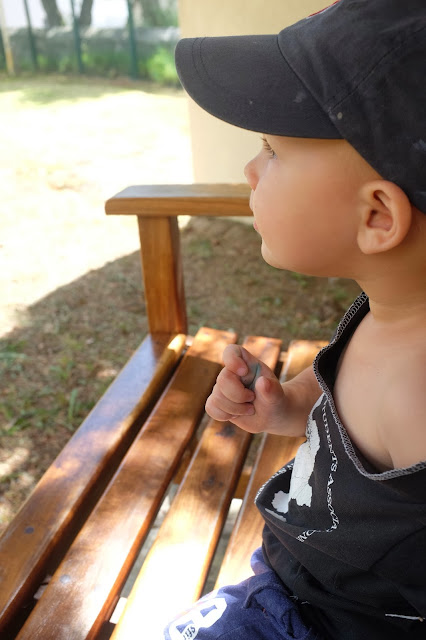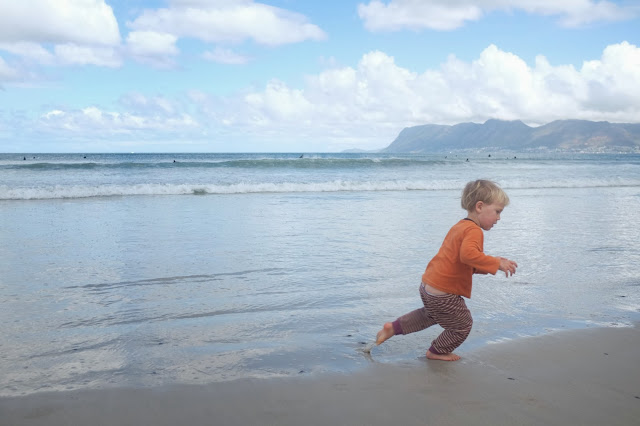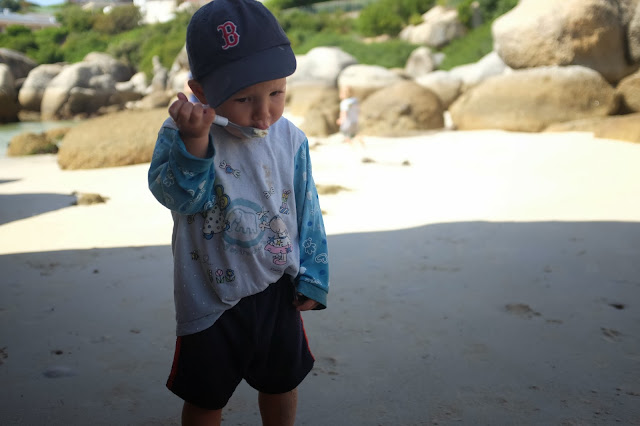I've noticed in our talking of Mandela as the father of our nation, we gloss over a lot. I am talking particularly to those of us who are white South Africans: When we talk about the Mandela who we loved and respected as the father of our nation, the father of our democracy, we hide the feelings of fear that dominated at the time, at least in my small corner of the world there in Durban North. Then, Madiba was not our father. It is a big deal that so many of us, myself included, now join the chorus of those who say goodbye to a father figure. What happened in between?
I think there is embarrassment in charting the change, so we go right to celebrating. Or maybe it doesn't feel appropriate to remember Mandela by talking about ourselves. But it is a big deal when people change their minds AND say their perspective on the world was wrong. It is something to be proud of. Maybe it builds courage for others grappling with other inherited prejudices to talk about exactly what made Mandela great for us.
So I want to talk about my parents' and my generation- the recovering racists. There is a gradual transition happening, where people are learning to say the right thing, but they don't believe that they received any undeserved privilege, and I'm not talking about that here. I'm talking about real change. Like recovering alcoholics, we're never fully "there" no matter how many years sober. But we changed, and Mandela was central to that change.
I was seven years old when Mandela was released from prison. I was a very little girl but I remember fear, I remember friends moving to Canada, Australia, New Zealand, the UK, to a lesser extent the U.S. in the years between 1990 and 1994. Envy at those with foreign passports. I remember the entitlement and the ignorance, and the fact that it was normal. I also now know how abnormal it was to have had more than a handful of friends or acquaintances shot or hijacked. When schools opened up it wasn't fun for the first black child in a formerly white school, the first coloured. Or the first hundred; in our neighbourhood, non-whites remained the outsiders in our schools right up until I left school in 1999. I remember when schools closed for three days for the first democratic elections in 1994, the mood in my neighbourhood wasn't ebullient. It was fearful.
But then there was the footage on TV of old grannies voting for the first time, there were images of Mandela's inauguration, and whatever else I knew, I knew I was witnessing a miracle. What Mandela did for those of us with small horizons, in "nice" racist neighbourhoods with very limited exposure to the systemic violence of apartheid- was to give us a glimpse of another way, one that included forgiveness, an actual taste of a world in which an eye for an eye didn't hold. It got me out of defensive mode long enough to learn something new. By proving our worst fears wrong, Mandela created a paradigm shift, and I understood the world a little differently after that first election. As I watched Mandela it was clear to me, an eleven year old, that the most common justification for apartheid, the statment that "'those' people need more time to develop" was simply not true.
But not everything changed after 1994. My world was still small and in that world, white people were still in charge, even if not politically. Sure, we learned at school about the Sharpeville Massacre and the Group Areas Act but these were taught as distant events, not events that were directly linked to the way we lived there in Durban. No one in our family belonged to the police or committed acts of violence during their military service! We weren't rich! The socioeconomic implications of apartheid were (and are) discussed in unhelpful and alienating ways: "formerly disadvantaged", "black economic empowerment". The new fear was affirmative action. I remember in 1999 arriving to Wales and to my first Math class and assuming that the black person next to me would need my help- that was all I knew. It was disorienting that
she had to help me figure out my TI-83 graphing calculator. And gradually, my horizons expanded through different glimpses of the world, study, different friendships. Those horizons are still expanding.
The point of this is not to foster guilt or self-hate. Racism was (is?) in the air and we could not help but breath it in. I want to highlight the significance of a large group of people giving up long-held prejudices- or trying to- because of Mandela's decisions in the 1990s. For us, it is a big deal for Mandela to be revered as a father. Perhaps a big enough deal to allow me to glance up from all the day-to-day things that grab my attention.























































